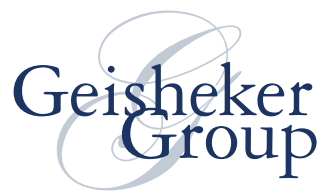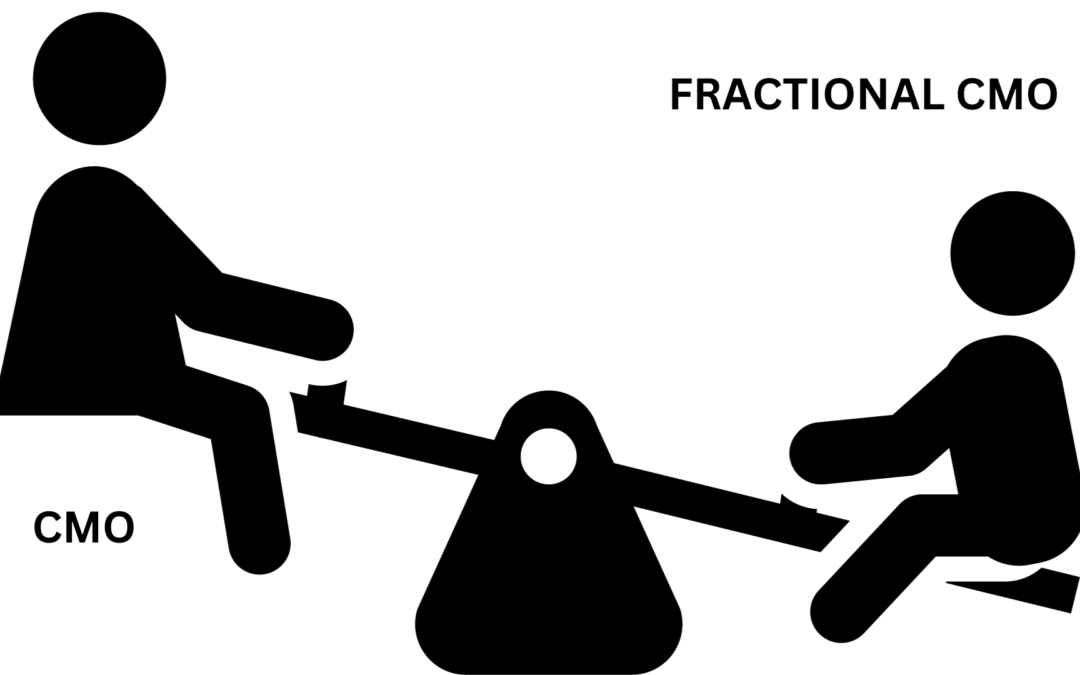In today’s fast-paced and ever-changing business landscape, companies are increasingly looking for ways to remain agile and adapt quickly to new market conditions. One strategy that has gained popularity in recent years is using a “fractional chief marketing officer” or fractional CMO.
A fractional CMO is someone who serves as the head of marketing for a company, but only on a part-time or project basis. They typically work with multiple clients simultaneously, providing strategic marketing guidance and expertise without needing a full-time marketing executive.
So, how exactly does a fractional CMO differ from a traditional, full-time CMO? And when does it make sense to use one versus the other? Here’s a look at the critical differences between the two roles:
Availability and Time Commitment
The most obvious difference is the time commitment. A full-time CMO works for one company exclusively, typically on a 40+ hour a week schedule. They handle all aspects of marketing strategy and execution for that business.
A fractional CMO, on the other hand, divides their time among multiple clients. They may work 20-30 hours per week for any given company. This provides greater flexibility and the ability to scale time up or down as needed.
For small or early-stage companies, a fractional CMO may be a better fit. They don’t require the full-time salary and benefits of a traditional CMO. The fractional model allows startups to afford high-level marketing expertise they otherwise couldn’t.
For larger companies, having a full-time CMO who is solely focused on their brand is often a better approach. They require the undivided attention and full dedication of a CMO.
Strategic vs. Tactical Focus
Full-time CMOs typically handle both strategic planning and tactical execution for marketing activities. This includes things like developing positioning, messaging, creative campaigns, and budget allocation.
Fractional CMOs are more focused on big-picture strategy and planning. They can develop frameworks, marketing plans, and creative direction. But tactical execution like project management is either shared with or handled by an in-house marketing team.
This strategic focus allows fractional CMOs to provide value to clients quickly without getting bogged down in implementation details. However for companies without existing marketing teams, a full-time CMO capable of managing tactical work may be required.
Objectivity and Perspective
An advantage of using a fractional CMO is that they come from an outsider’s perspective. Being external to any one company provides more objectivity and big-picture thinking.
Full-time CMOs who come up through the ranks internally can sometimes get stuck in status quo ways of doing things. Bringing in an unbiased fractional CMO can shake things up in a positive way. They spot blind spots and identify growth opportunities companies miss on their own.
However, an in-house CMO has the benefit of deeper institutional knowledge. They understand company history and context in a way an outsider may not. So there are advantages to both approaches.
Flexibility and Cost Structure
The fractional model provides more flexibility in the cost structure. Companies pay only for the time they need, with the ability to scale up and down. There is no fixed salary or overhead required.
For budget-conscious companies or those with fluctuating marketing needs, this variable cost model makes a lot of sense. Marketing may be critical only during certain launch periods or campaigns. A fractional CMO provides support during those critical times.
Of course, the tradeoff is that fractional CMOs will divide their attention across multiple clients. They can’t be on call 24/7 the way an in-house resource could be. Again, it comes down to aligning needs and resources.
When Does it Make Sense to Use a Fractional CMO?
Here are scenarios where a fractional CMO may be the preferable choice over a full-time role:
- Early-stage startups seeking high-level marketing strategy and direction on a budget
- Companies undergoing a major transition period (new product launch, rebranding initiative, expansion to new markets) where short-term marketing help is needed
- Seasonal businesses that require heavy marketing support during certain peak periods
- Companies that want an objective outside perspective to evaluate current marketing initiatives and opportunities
- Organizations that need expert-level marketing skills but don’t have the budget for the full salary and overhead of a CMO
- Periods of rapid growth where marketing needs to scale up quickly before settling back down
- Mergers, acquisitions, or spinoffs where short-term marketing leadership is required during the transition
The Takeaway
The rise of fractional CMOs provides an alternative model for companies seeking senior-level marketing expertise without the fixed cost of a full-time executive. The model isn’t necessarily better or worse than hiring a CMO – it comes down to aligning business needs and resources.
For the right organizations and situations, fractional CMOs can provide targeted support during periods of transition, growth, or change. They offer the experience of a CMO on a more adaptable and accessible basis for companies aiming to be nimble and flexible in an evolving business world.
If You Need Fractional CMO Services, We Can Help
If your company needs a Fractional CMO for Saas, consider working with Peter Geisheker, CEO of The Geisheker Group. Peter has been providing Fractional CMO services for SaaS companies for over 20 years. His specialty is B2B lead generation for SaaS companies.


